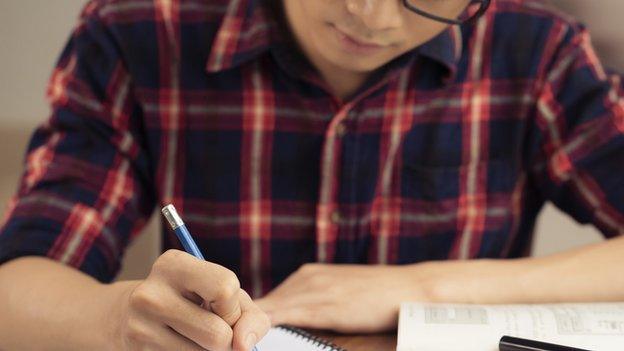Singaporeans fight 'exam-shaming' by sharing scores and careers
- Published
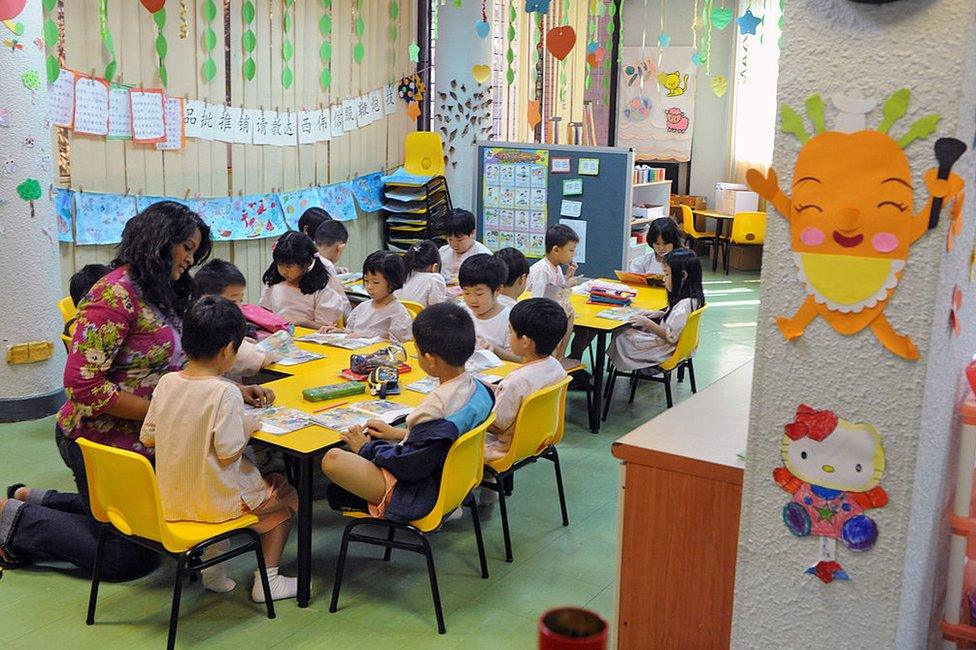
There have been calls in Singapore to reduce stress on children in the city's highly competitive education system
Singaporeans have been sharing their exam results and current careers, in an effort to fight stigma over "mediocre" scores.
The results of the high-stakes primary school leaving exam, which students sit aged 12, came out last week.
The test determines a child's path in the competitive school system and has become a source of stress for many.
But a call, external for people to share stories to show how exams don't need to decide your future has sparked an outpouring.
Over the weekend hundreds responded, external to Khairudin Aljunied, a local university professor who said the move would give young children "hope and motivation".
"My PSLE score is 221. I am now an Associate Professor in a University," he wrote. Athletes, teachers, engineers, entrepreneurs and a member of parliament all followed suit.
All 12-year-olds in Singapore's school system must sit the Primary School Leaving Examination (PSLE), which gives an aggregate three-digit score across subjects. A score below 200 is widely considered poor.
But the city has also seen growing calls for a more relaxed educational environment.
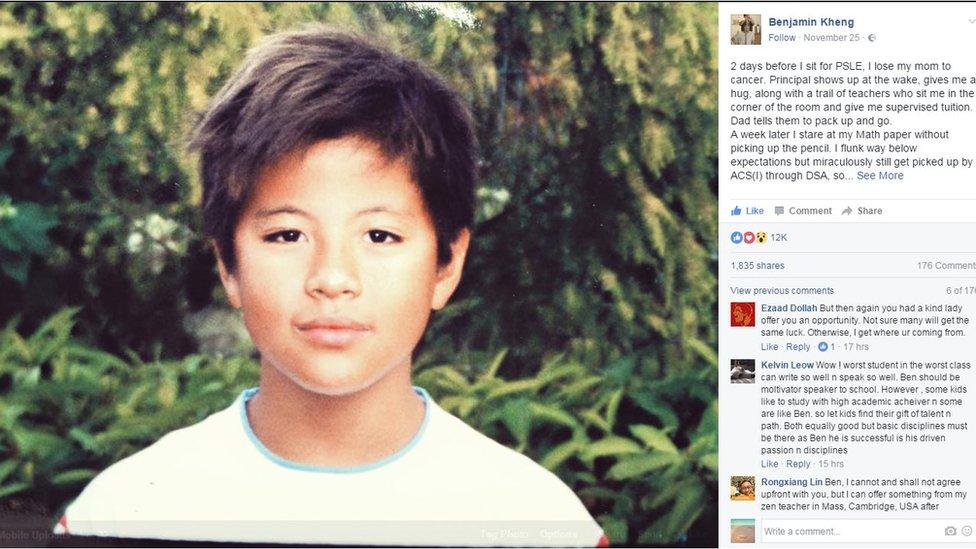
Mr Kheng shared a photo of himself as a child and described how his mother's death two days before the exam affected him
One popular post was by singer Benjamin Kheng, external who shared how he went from the "worst kid in the worst class" in school to the frontman of a successful rock band.
"To every kid fearful of the road to school or back home, finding it hard to breathe, because of 3 stupid digits - the world loves you. You are deeply loved, and you are more than this," he said.
It also prompted a government minister to acknowledge the issue of exam stress.
Social and family development minister Tan Chuan-jin said on his Facebook page, external: "I think we are on really shaky grounds if PSLE is the main determinant of our children having a happy childhood."

Those who shared their stories included a nuclear pharmacist...
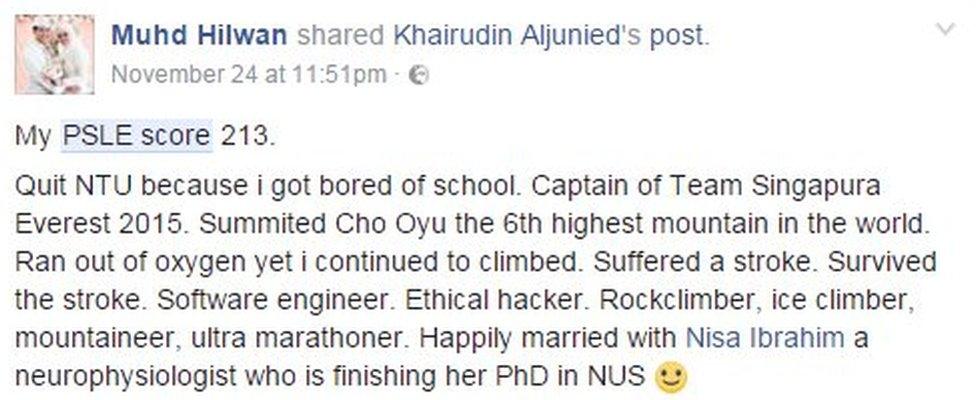
... the captain of Singapore's Mount Everest team...
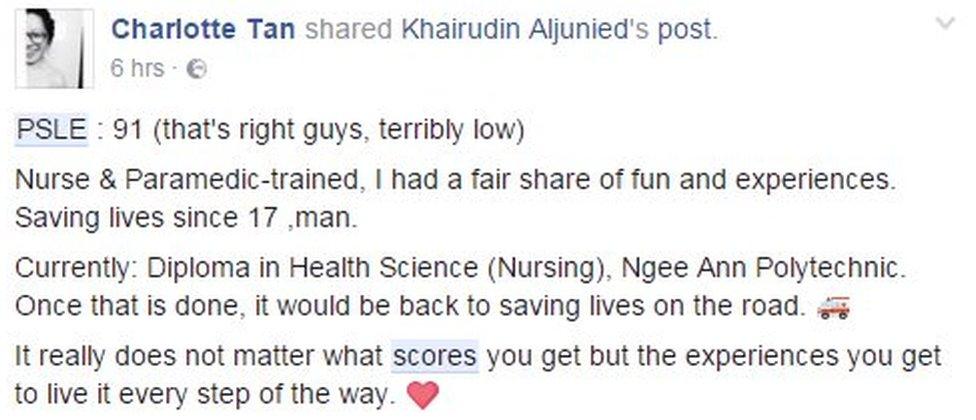
... and a student nurse.
Changing attitudes
The trend is part of a growing movement over the years calling for less emphasis on academic achievements and less stress on children.
In October, a case where an 11-year-old boy, external jumped to his death from his high-rise flat allegedly because of exam and parental stress became a talking point in the city.
But changing attitudes remains an uphill task in a society where it is the norm for children to attend tuition classes after school, and where top exam scorers are feted, fronting advertising campaigns for health supplements.
The PSLE generates intense local press coverage with critics saying it contributes to an unhealthy pressure-cooker environment and those who defend it saying it is still the best way to test children's academic aptitude.
The government has retained the PSLE but has sought to make the school system less rigid and competitive. In 2012, it abolished the long-standing tradition of releasing the names and results of PSLE top scorers to the public.
But this has not deterred some parents - on Thursday thousands logged on to a website called Kiasuparents.com to compare their children's scores, causing the online portal to crash, external.
Kiasu, in the Hokkien language spoken widely in Singapore, means "afraid to lose".
- Published8 September 2016
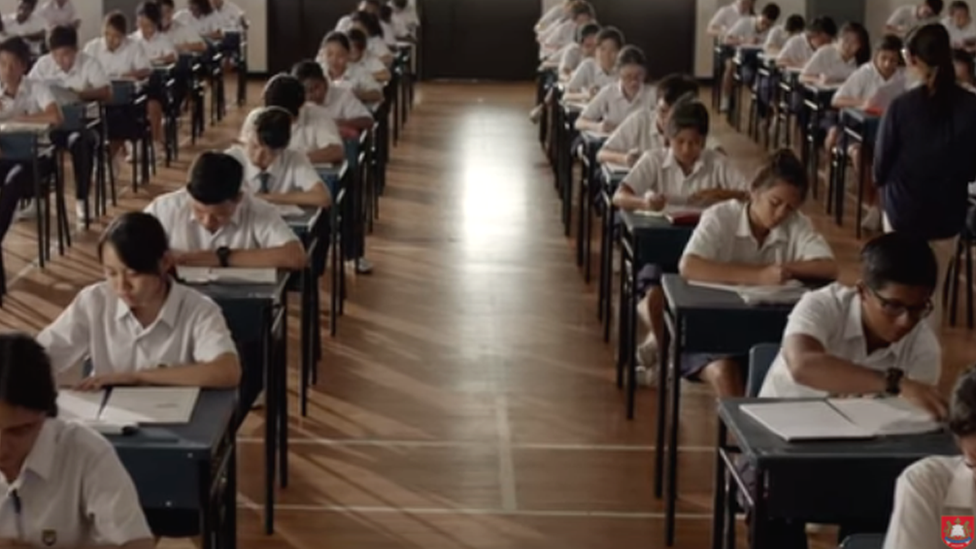
- Published14 April 2015
